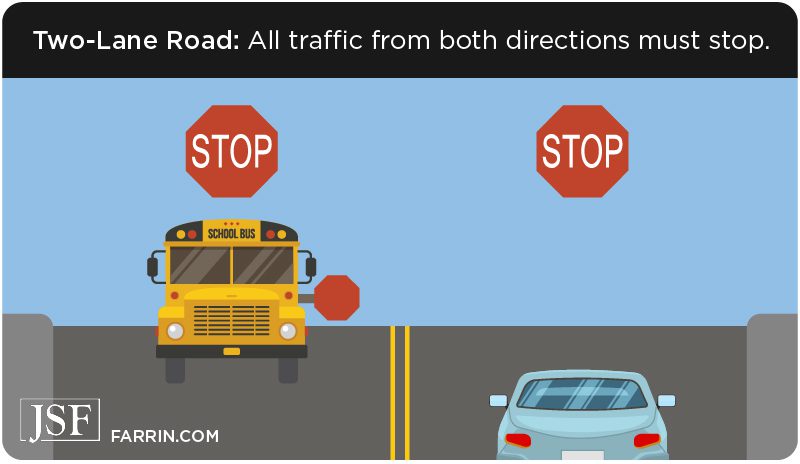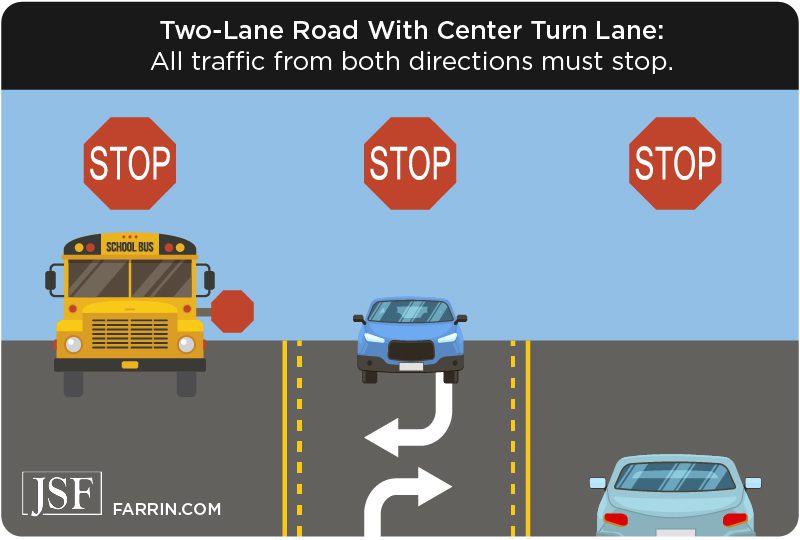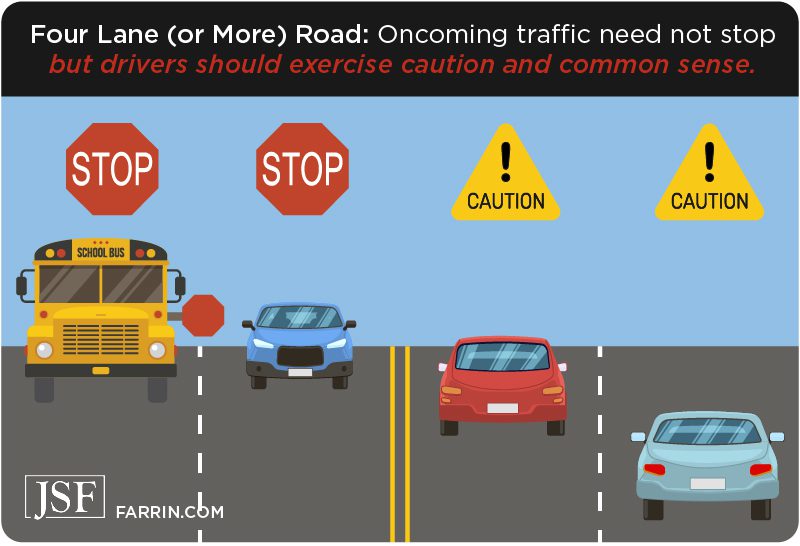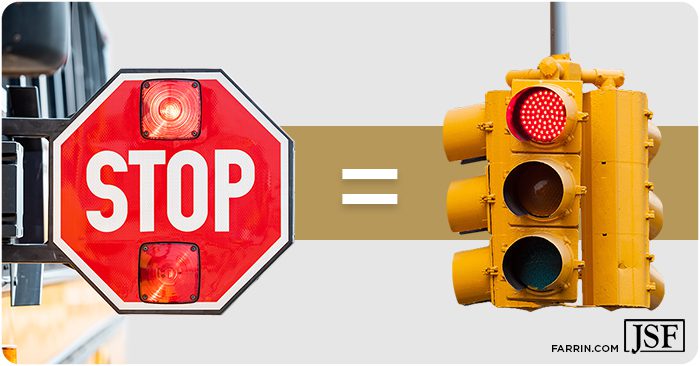How many times have you seen someone pass a school bus and thought, “That doesn’t look right.” The truth is that pass may have been illegal! A surprising number of people don’t know when they’re required to stop for school buses and when they’re allowed to pass. So what exactly are the rules for drivers around a stopped school bus? And what happens when a child is injured by a careless driver?
Here are the answers you’re looking for, with graphics you can share (so your online friends also know when they’re supposed to stop for school buses).
When Do You Have to Stop for a School Bus in South Carolina?
South Carolina’s rules are relatively simple:
-
- If you’re behind or following the bus or traveling in the same direction as the bus, regardless of the number of lanes, you must always
-
- On a two-lane road traveling in the opposite direction, you must stop.
-
- On a two-lane road with a central turning lane, you must stop.
Once again, here are a couple of simple graphics to make sure it’s clear who should stop for school buses in South Carolina.
Who Should Stop for SC School Buses: Two-Lane Road
Who Should Stop for SC School Buses: Two-Lane Road With Center Turn Lane
When Do You Not Have to Stop for a School Bus in South Carolina?
South Carolina’s DMV manual details when drivers are not required to stop. However, drivers should still proceed with caution.
- On a road with four or more lanes, oncoming traffic does not have to stop.
Who Should Stop for SC School Buses: Four+ Lane Road
When Can I Pass a School Bus in South Carolina?
Short answer? If the lights aren’t flashing and the sign is not displayed, you can generally pass normally. In South Carolina, if the bus is displaying its stop sign or the red lights are flashing, you are not legally allowed to pass it. Some drivers may want to treat the bus’s stop sign like a traditional stop sign. They’ll stop (if they even bother to stop completely), check both ways, and then proceed. That’s not how the school bus stop sign works.
Think of the school bus stop sign like a solid red traffic light. You don’t stop at a solid red light and then proceed, and you shouldn’t with a school bus stop sign either. When the stop sign retracts, and the lights stop flashing, that’s your signal to proceed.
To reiterate: in South Carolina, it is illegal to pass a stopped school bus that is displaying its stop sign with red flashing lights.
Can I Pass a School Bus When Its Lights Are Flashing Yellow?
No, you can’t pass on the flashing yellow. South Carolina laws make it illegal to pass a school bus when its yellow lights are flashing. And contrary to the behavior you often see, yellow lights are not a sign to speed up.
How Far Away Should I Stop for a School Bus?
It depends on the state. As a random example, Colorado prescribes 20 feet between the driver’s vehicle and the school bus. South Carolina does not specify a distance in the law. When it comes down to it, be reasonable. Stop a safe distance away and remember that school buses may roll backward on a hill!
What Happens if I Illegally Pass a School Bus in South Carolina?
South Carolina has several punishments in store for drivers who illegally pass school buses. A driver who violates this law is:
-
- fined a minimum of $500, OR imprisoned for up to 30 days (or appropriate community service)
-
- penalized six points on their driver’s license/insurance
If the driver illegally passing the school bus hits someone and causes great bodily harm, the penalties increase dramatically. If convicted, the driver is:
-
- guilty of a felony
-
- fined a minimum of $5,000 and a maximum of $10,000
-
- imprisoned for a minimum of 60 days and up to one year
The law in South Carolina defines “great bodily harm” as “bodily injury which creates a substantial risk of death or which causes serious, permanent disfigurement or protracted loss or impairment of the function of any bodily member or organ.”
If a driver illegally passes a school bus and kills a person, the penalties logically increase. If convicted, the driver is:
-
- guilty of a felony
-
- fined a minimum of $10,000 and a maximum of $25,000
-
- imprisoned for a minimum of one year and up to five years
In addition to these penalties, a person who passes a school bus illegally and causes great bodily injury or death will have their license suspended for the term of imprisonment plus one year.
Know the Rules and Use Caution Driving Near South Carolina School Buses!
No one wants to be hurt by a negligent driver, especially when the injury is to a child. The rules are spelled out plainly, and they’re not complicated. Drivers have no excuse for not knowing them. Hurt someone and the law will come for them – and so could a personal injury firm like ours.
That’s right. If you hit someone illegally passing a school bus, you could face a criminal case AND a civil lawsuit. If you or someone you love has been injured by a driver illegally passing a school bus in South Carolina, contact us at your earliest convenience.
Also, please feel free to share any of the graphics on this page. We’ve even put them all into a big, shareable infographic below. Post it to Facebook, Instagram, Twitter, or whatever social media you use. Help us eliminate the confusion and help drivers and kids stay safe. If we can prevent even one injury, it’s more than worth the effort!
You May Also Be Interested In
The Ultimate Guide to South Carolina Car Accident Law
How to Get South Carolina Car Accident Reports (and More)
Comparative Negligence in South Carolina: The Definitive Guide







